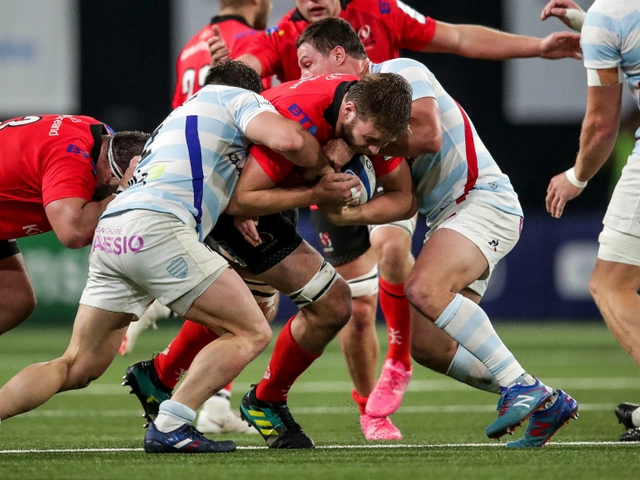Examining the Physical and Mental Challenges of Retiring from Rugby at the Right Age
Rugby is a high-intensity contact sport that requires speed, agility, strength and a good amount of determination. It is a game that requires its players to be highly conditioned both physically and mentally. But with the potential for serious injuries, it is only natural to wonder when the right time is for a rugby player to retire.
When it comes to the physical aspects of playing rugby, the right age for retirement will depend on many factors. For example, players who have had multiple injuries and are prone to re-injury may need to retire sooner than those who have managed to stay healthy and fit. Additionally, the age of a player can have an effect on physical performance, with older players likely to experience a sharp decline in speed, agility, and strength.
The mental aspect of retirement is also something to consider. For many players, the game is a passion and a way of life. Retiring can be a difficult decision, as it means saying goodbye to something that has been a major part of their life for so long. Furthermore, many players struggle to find a new purpose and identity after retiring from the game.
Regardless of a player’s age or physical condition, there is no one-size-fits-all answer to the question of when the right time is to retire from rugby. Every player is different, and the decision to retire should be based on a combination of factors. It is important that players take the time to evaluate their physical and mental state, as well as their long-term goals, and make an informed decision that is best for them.
Strategies for a Rugby Player to Maintain a Healthy Lifestyle After Retirement
Retiring from a career in rugby can be a difficult transition for many players. Not only do they have to cope with the physical and emotional changes of no longer playing at a professional level, but they must also adjust to a different lifestyle. Fortunately, there are many strategies a rugby player can employ to maintain a healthy lifestyle after retirement.
One key strategy for any rugby retiree is to stay active. Exercise has been found to have myriad physical and mental health benefits, and can be a great way for former players to stay in shape and connect with the sport they once played. The type of exercise they choose is up to the individual, but it should be something they enjoy and look forward to doing. For example, they could join a rugby team at their local club or sign up for a fun running group.
Another important strategy is to focus on nutrition. Eating a balanced diet full of fresh fruits, vegetables, lean proteins, and healthy fats is essential for staying healthy and fit. Former rugby players should also pay attention to their food intake and avoid overindulging in unhealthy foods and drinks. Additionally, they should drink plenty of water and limit their alcohol consumption.
Finally, it is important for former rugby players to take care of their physical and mental health. This is especially true for those who have suffered injuries during their career. It is essential to address any physical ailments and to seek professional help for any mental health issues. Taking care of one's physical and mental health will help ensure a former rugby player is able to maintain a healthy lifestyle after retirement.
What is the right age for a rugby player to retire? This is a difficult question to answer, as it varies from player to player. However, it is important for any rugby player to be mindful of their physical and mental health, and to take the necessary steps to maintain a healthy lifestyle after retirement.
What is the right age for a rugby player to retire?
A rugby player's career is an incredibly demanding and physical one, and when the time comes to hang up the boots, it's important to consider the right age to retire. There are pros and cons to retiring at different ages, and the right age for an individual can depend on many factors.
Retiring Early
Retiring early can have both its advantages and disadvantages. The main advantage to retiring early is that a player can still enjoy their best years in terms of physical fitness and agility. We all know that age takes its toll on the body, and retiring early gives a player the chance to enjoy their peak years.
The downside to retiring early is that a player may regret not having the chance to experience their full potential. Players may want to experience their career to its fullest, and retiring early can mean missing out on that.
Retiring Late
Retiring late has its own set of pros and cons. The main advantage is that a player can continue to enjoy the full experience of their career. They can stay at the top of their game and experience the full extent of their potential.
The downside is that age can take its toll, and a player may not be as agile and physically fit as they once were. This can mean that their performance is not as good as it once was, and they may be putting themselves at greater risk of injury.
Conclusion
The right age to retire from rugby is different for every individual and can depend on many factors. Retiring early can mean missing out on the full experience of a player's career, but it can also mean enjoying the best years in terms of physical fitness and agility. Retiring late can mean experiencing the full extent of a player's potential, but it can also mean that age has taken its toll and performance is not as good as it once was. Ultimately, the right age to retire is a personal decision, and players should take all factors into account before making the decision.





